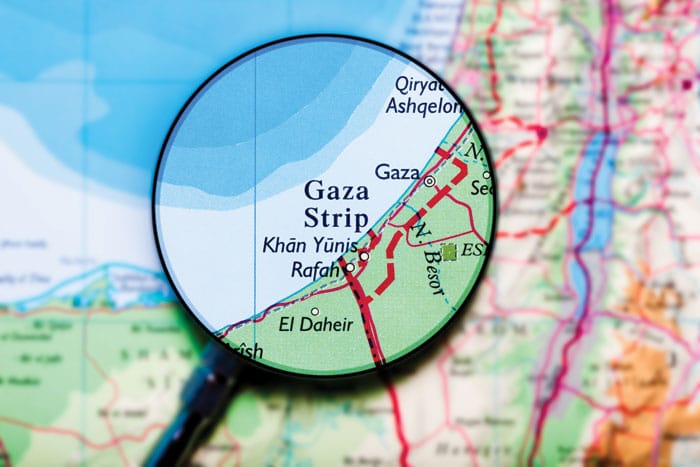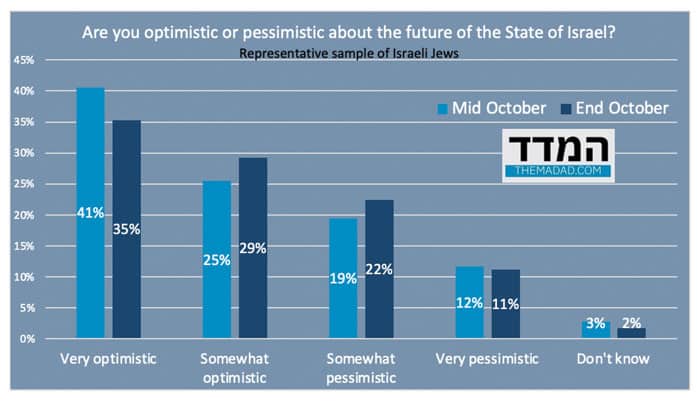 pawel.gaul/Getty Images
pawel.gaul/Getty Images The day after is still in the future, possibly the somewhat far future. And yet, it is on the minds of both the policy makers, notably Americans, and of citizens. What will the Gaza Strip look like the day after? That depends, first and foremost, on the outcome of the war. It also depends on Israel’s wishes, and on international pressures, and on internal Palestinian trends.
The day after begins with Israel’s objectives as repeatedly stated, yet with some variations, in recent weeks. One thing is for sure: Hamas is no longer going to rule Gaza. That is a goal Israel and the U.S. share, as National Security Council spokesperson John Kirby said (“What we support is that Hamas can’t be in control of Gaza anymore”). Then again, someone needs to be in control, and it’s not clear whom that might be.
“I think Israel will, for an indefinite period, have the overall security responsibility [over Gaza]”, was the response of Prime Minister Benjamin Netanyahu. That is an answer, but not the full answer. Overall security responsibility is one thing, responsibility for all other things – schools, sewage, traffic, law and order, hospitals – is quite another. And here, Israel and the U.S. might not share the same vision. For the U.S., the answer seems clear – the Palestinian Authority (PA) will have control. For Israel, the answer depends on whom you ask. A rightwing Netanyahu government would prefer, or insist, on a different arrangement. Many of this government’s members see the PA not as a solution to a problem, but rather, as another problem, not much different – in principle, if not action – than Hamas. A centrist government is likely to accept the idea of PA control in Gaza, but its members are likely to agree with Netanyahu on the issue of overall security responsibility.
The real division concerning the future of Gaza is not professional – what arrangement would be more efficient in providing security to the border – it is ideological. In fact, the debate is over the following question, and you’d have to forgive me for insisting on nuance, as in this case the nuance is the essence: Does Israel strive to solve a security issue in the most efficient way – or does it strive to solve a security issue in a way that also indicates an overall strategy towards the “Palestinian issue”?
Let me explain: When Netanyahu says, “overall security responsibility,” that’s a professional remedy to a security challenge. With such an answer he seems to be agnostic about other issues. When the U.S. hints that it wants the PA to control Gaza, that’s an indication of an overall strategy towards the “Palestinian issue.” The U.S. is interested in security for Israel plus something – the strengthening of the PA by way of making the vision of a two-state solution more viable.
Surely, there are also Israelis with some ideas about the future that involve more than a security guarantee. There are Israelis who see the current situation as an opportunity to go back to settling the Gaza Strip, reversing the 2005 “disengagement” from Gaza. They will surely dress their vision in security-related arguments, some of which are not so easy to refute (where there are settlers, the IDF is more alert). And yet, it is clear that wishing to “return” to Gaza is more than a prescribed security arrangement for after the war. It is an ideological statement whose implications for the future of the overall strategy towards the “Palestinian issue” is clear.
I don’t think settlements in Gaza are likely to be rebuilt after the war. I also don’t think it’d be easy for the U.S. to use the carnage as an opportunity to reignite a political process towards a two-state solution. These two ideas are extreme in a similar way: they deviate too quickly from what the war is about – guarantee of security and order – to some grander vision for a challenge that eluded policy makers since Israel’s birth.
This war is fought to eliminate a genocidal regime that cannot be tolerated on Israel’s border. Let’s get the immediate security challenge off the table, and only then worry about grander dreams.
This war is fought to guarantee the ability of Israel to resettle the towns and villages on its south-western region, near Gaza, and on its northern region, near the Lebanon border. It is fought to eliminate a genocidal regime that cannot be tolerated on its border. So as much as I dislike the idea of embracing anything Netanyahu says – given what I believe to be his overall responsibility for the mayhem – his agnostic, dry response to the question of the day after is currently the only reasonable one. Let’s get the immediate security challenge off the table, and only then worry about grander dreams. In other words: Greater Israel and Lasting Peace will have to wait for calmer days.
Something I wrote in Hebrew
Israel has been shaken, and is at war, but has not lost its optimism. Or at least that’s what its citizens say. In October we surveyed the public twice: Once at the second week of the war and again at the fourth. As you can see below, the level of optimism is almost identical in both surveys … so either both polls are broken for some reason, or this is simply the situation: Two-thirds of the Jews in Israel are optimistic about Israel’s future, in spite of the blow, in spite of the shock, in spite of the heartbreak, in spite of the disturbing scenes, in spite of the doubts. Is two-thirds expressing optimism a lot or a little? This of course depends on both the situation and the expectations … In general, it is good for countries when their citizens are optimistic. In general, it is good for countries when their citizens correctly assess reality.
A week’s numbers
Israelis shocked and determined – and seem to believe that Israel will win and thrive.

A reader’s response:
Erez Yoffie asks: “Any idea how much time the war is expected to last?” Answer: If it’s up to Israelis, as long as it takes to achieve the war’s objectives.
Shmuel Rosner is senior political editor. For more analysis of Israeli and international politics, visit Rosner’s Domain at jewishjournal.com/rosnersdomain.























 More news and opinions than at a Shabbat dinner, right in your inbox.
More news and opinions than at a Shabbat dinner, right in your inbox.